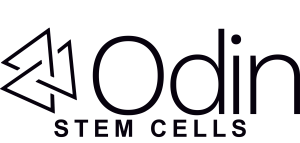The Promise of MSC Stem Cell Therapy for Juvenile Diabetes
At Odin Stem Cells, we are passionate about exploring the cutting edge of regenerative medicine. One of the most promising frontiers today is the use of mesenchymal stem cells (MSCs) for treating juvenile diabetes, also known as type 1 diabetes (T1D). MSCs possess powerful immunomodulatory and regenerative properties, making them strong candidates for altering the course of this autoimmune disease. Recent clinical studies provide growing evidence supporting the efficacy and safety of MSC therapies. Let’s dive into some of the most exciting findings.
MUSC Clinical Trial: A U.S. Breakthrough
The Medical University of South Carolina (MUSC) is leading the way with a groundbreaking clinical trial for newly diagnosed T1D patients. Participants receive a single intravenous infusion of MSCs aimed at modulating the immune system to protect pancreatic function. Early results have been so promising that the NIH renewed their funding with a $3.2 million grant to expand the trial to 50 participants. This study represents a major step toward establishing MSC therapy as a mainstream treatment for T1D.
Phase I/II Randomized Controlled Trial in Iran: Proving Safety and Potential
Published in Stem Cell Research & Therapy, a clinical trial in Iran evaluated the effects of intravenous autologous bone marrow-derived MSCs in newly diagnosed T1D patients. The results were encouraging: the therapy was safe and showed real potential in preserving pancreatic β-cell function. This preservation is critical because maintaining endogenous insulin production can dramatically improve quality of life and disease outcomes.
Umbilical Cord MSCs in China: A Broader Age Range and Impressive Outcomes
In an open-label study conducted in China, researchers used Wharton’s Jelly-derived MSCs (WJ-MSCs) to treat patients aged 8 to 55 years with T1D. After receiving intravenous infusions, patients in the intervention group saw significant improvements in C-peptide levels (a marker of insulin production), lower HbA1c, better fasting glucose levels, and reduced daily insulin requirements. These results further validate the regenerative and immunomodulatory power of MSCs.
Meta-Analysis: Building a Global Consensus
A comprehensive meta-analysis recently reinforced the consensus that MSC therapy is both safe and effective for T1D. The analysis highlighted MSCs’ low immunogenicity and their unique ability to secrete cytokines that modulate immune responses and promote β-cell function. These findings strengthen the case for MSCs as a transformative therapy for managing and potentially reversing the course of juvenile diabetes.
How MSCs Work in Juvenile Diabetes
MSC therapy targets the underlying autoimmune process of T1D, rather than just managing symptoms:
- Immunomodulation: MSCs dampen the immune system’s attack on pancreatic β-cells.
- Regeneration: They promote healing and regeneration of damaged pancreatic tissue.
- Differentiation: MSCs may even differentiate into insulin-producing cells, replenishing the body’s natural insulin stores.
The Road Ahead
While these studies are encouraging, MSC therapy for juvenile diabetes is still in the research phase. Continued clinical trials and long-term studies will be essential to confirm safety, refine treatment protocols, and ultimately bring this promising therapy to the wider public.
At Odin Stem Cells, we remain committed to advancing the science of regenerative medicine and bringing hope to those living with type 1 diabetes. Stay tuned for more updates as we continue to lead the way in innovative, stem cell-based therapies.
Interested in Learning More?
If you’re curious about how MSC therapy could impact the future of diabetes care, or if you want to know more about our research at Odin Stem Cells, don’t hesitate to reach out to us. Together, we can explore the future of healing.
📚 References
- Medical University of South Carolina (MUSC) Clinical Trial on MSCs in Type 1 Diabetes. MUSC Health. Link
- Phase I/II Clinical Trial of Bone Marrow-Derived MSCs in Newly Diagnosed T1D Patients. Stem Cell Research & Therapy. Link
- Wharton’s Jelly MSCs in Type 1 Diabetes Patients. STEM CELLS Translational Medicine. Link
- Meta-Analysis of MSC Therapy in Diabetes. Frontiers in Endocrinology. Link

